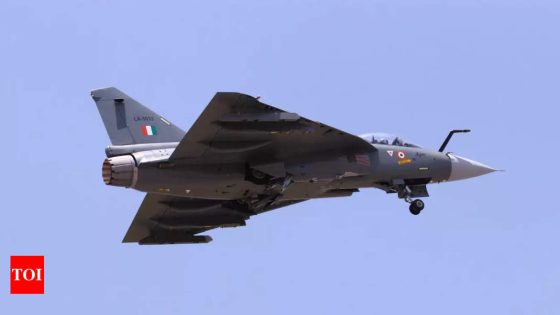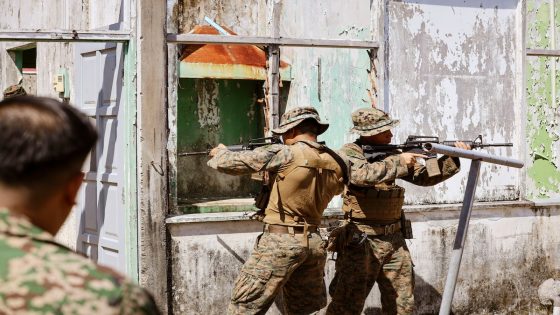Defence PSU HAL, which is manufacturing the Tejas Mk-1A or LCA Mk1A or developed by Bengaluru-based DRDO lab Aeronautical Development Agency (ADA), had been conducting various taxi trials over the past several days.
Thursday’s maiden flight lasted 18 minutes and was piloted by Group Capt (retd) KK Venugopal, HAL chief test pilot (fixed wing).
“The first aircraft LA5033 of the Tejas Mk1A aircraft series took to the skies from HAL facility in Bengaluru today (Thursday). It was a successful sortie with a flying time of 18 minutes,” HAL said Thursday.
The Mk-1A will come with digital radar warning receivers, a superior AESA (active electronically scanned array) radar, advanced beyond-visual-range (BVR) air-to-air missiles and external self-protection jammer pods, among other improvements.
HAL, which has delivered 32 single-seat LCA fighters and two of the eight twin-seat trainers of the 40 Tejas Mk1 order worth Rs 8,802 crore, will now have to begin delivery of 83 Tejas Mk-1A in the March 2024-Feb 2028 timeframe. This is as stipulated by the Rs 46,898 crore contract for 83 improved Tejas Mark-1A jets of 2021.
On Nov 23, 2023, PM Narendra Modi flew in a trainer that was delivered in Oct 2023, Putting his personal stamp of approval on the indigenous Tejas fighter, which will become the mainstay of the IAF in the years ahead instead of foreign jets.
The IAF already has two Tejas squadrons, the ‘Flying Daggers’ and ‘Flying Bullets’, one of which is now deployed in the southwestern sector facing Pakistan.
“Successfully completed a sortie on Tejas. The experience was incredibly enriching, significantly bolstering my confidence in our country’s indigenous capabilities, and leaving me with a renewed sense of pride and optimism about our national potential,” Modi had said, after becoming the first PM to fly in a fighter jet.
In line with making Tejas the mainstay of IAF, the defence acquisition council (DAC) has granted the acceptance of necessity (AON) for 97 more Tejas Mk-1A aircraft and an order to procure these is expected after the final clearance from the cabinet committee on security (CCS) is received.
Tejas is critical for IAF to stem the depletion in the number of its fighter squadrons, which is down to just 31 when at least 42 are required to tackle China and Pakistan.
From very little confidence from both the IAF and the Centre in the Tejas in its initial years of flying, the fighter has grown to become a platform that is being showcased as a flagbearer by India in multiple defence and aero shows across the world.
It is noteworthy that the IAF reported its first loss of a Tejas Mk 1 fighter aircraft to an air crash on March 12.
Source Agencies



